
Now That You’re on the Board, What’s Next?
Published January 2018

Editor’s Note: The following advice from professional management companies is presented to aid board members in carrying out their responsibilities. While it is not exhaustive, there is much useful information provided by these industry experts.
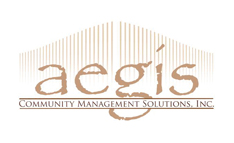 Develop Deliberate and Timely Processes
Develop Deliberate and Timely Processes
By David Burman, AMS®, PCAM®
Welcome to the board of directors! You are about to embark on a remarkably diverse experience, with opportunities to meaningfully influence the quality and value of your neighborhood. You might have the opportunity to learn something new as you and your fellow board members govern the community and manage the business of the association. The spectrum of business you will be faced with will range from the critical to the routine, from serious to hilarious, and from simple to challenging. If you have never served in an elected office, you will likely begin to view government at every level in a new way. Each board member will bring unique perspectives and experience to the board, and experiencing this adventure together will deepen your relationships with your fellow community leaders. Board members collectively share successes and failures, conflicts and resolutions, and victories and compromises. Many board members become close friends for long after their terms on the board have expired.
There are many common misconceptions about the role that HOA and condominium board members play. There are an even greater number of misconceptions regarding the authority that board members possess. While no single resource could comprehensively address every concept related to board service, newly elected board members should first seek to define the role they each will play in the association and specifically what role each of the various stakeholders, such as the manager and vendors, will play. Business organizations are structured in a way that promotes efficiency. Successful organizations structure themselves in a way that takes advantage of each member’s strengths, background, and experience. Community associations are no different. Boards, both new and old, should develop deliberate and timely processes in order to meet their goals and objectives.
David Burman is President of Aegis Community Management Solutions. For more information, call (863) 256-5052 ext. 226, email davidb@aegiscms.com, or visit www.aegiscms.com.
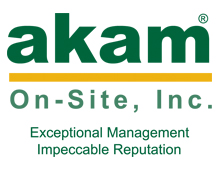 Fulfill Your Obligations
Fulfill Your Obligations
By David Cohen, LCAM
As a newly elected or appointed board member, the state of Florida requires you to fulfill one of the following obligations within the first 90 days of taking office.
Option 1: Complete the educational curriculum administered by a state-approved provider within 90 days of the date of election/appointment or have already completed said curriculum within a year prior to taking office.
Option 2: Submit a certified letter to the secretary of the association stating that you have read the association’s declaration of covenants, articles of incorporation, bylaws, and current written rules and policies; that you will work to uphold such documents and policies to the best of your ability; and that you will faithfully discharge your fiduciary responsibility to the association’s members.
David Cohen is Vice President for AKAM On-Site Inc. For more information, call (954) 843-2526 or visit www.AKAMonsite.com.
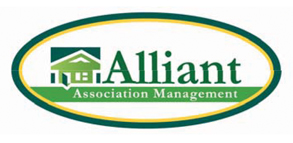 Welcome to the Board, Now What?
Welcome to the Board, Now What?
By Jonathan Busa, CAM, Vice President
Congratulations and welcome to the board of directors! Now what? Many homeowners who volunteer their time to serve on a board may not know exactly what to expect. Others believe that it takes great skill or a certain set of qualifications. This is not necessarily the case, and it is certainly not required.
You can be a successful member of the board without any experience or specific knowledge. It all starts with understanding your role and keeping it simple. As a fiduciary, you have the duty to the homeowners to manage and operate the association with care, skill, prudence, and diligence.
Specifically, make sure you always comply with the governing documents and Florida statutes, maintain the common areas and amenities to high standards, establish reasonable budgets and reserves, collect the assessments and enforce rules, keep good books and records, and handle emergencies as they arise.
If you are not experienced in handling these tasks, the best step to take to fulfill your duty is to seek the advice and guidance of prudent experts such as community association managers, attorneys, and accountants before making decisions; and finally, all decisions should be made in the collective best interests of homeowners.
Jonathan Busa is a CAM and vice president with Alliant Property Management. For more information, call (239) 454-1101 or visit www.AlliantProperty.com.
 Understanding Your Role as a Board Member in a Community Association
Understanding Your Role as a Board Member in a Community Association
By Dan Tiernan, COO
Congratulations on joining your board of directors. Community association boards are very different in form and function than corporate boards, school boards, charitable boards, commercial association boards, and so on. Why?
- Your community board is a political organization.
- It’s run by unpaid volunteers.
- The shareholders are all highly invested.
- The shareholders will almost never agree on a common set of goals and objectives.
- You can’t go home and leave it behind because your job is your home!
No matter how successful you may have been in business, government, politics, the military, the educational field, or any other entity, you can never be fully prepared for your experience on a community association board. To help you understand your role better, we will address the following question.
What Do Board Members Do?
Board members are responsible for the administration of the association. The association is responsible for the maintenance, management, and operation of the association property.
The duties of board members include but are not limited to the following items:
- Establishing an annual budget
- Conducting legal elections
- Overseeing the maintenance of the common elements
- Managing the finances
- Participating in board meetings
- Enforcing the rules and regulations
- Working with others to achieve the goals of the association.
Your job is a thankless job, but someone must do it. Hopefully, your neighbors will recognize that you are investing your time and energy for the benefit of your community, while they may be off fishing, playing golf, watching a movie, or otherwise enjoying themselves.
Dan Tiernan is Chief Operating Officer with Campbell Property Management. For more information, call (954) 427-8770 or visit www.CampbellPropertyManagement.com.
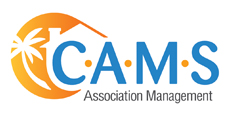 Top Touchy-Feely Tip for the New Board Member
Top Touchy-Feely Tip for the New Board Member
By George Reiter, President
As a new board member, there’s a lot to learn about your community, much of which is contained in the governing documents and financials. You can learn by speaking with fellow board members, residents, and vendors and even by digging into whatever records might be handy, from paid bills to correspondence.
What often doesn’t get a lot of attention, however, is the human element of the journey on which you’re about to embark. No matter how trivial a decision in your hands might seem or how clear cut a situation might appear, always remember that you are presiding over people’s homes. One’s home is his sanctuary and, in many cases, is the most valuable asset an individual or family will ever own. Everything regarding a home is personal and worth fighting for if the homeowner feels adversely affected.
Board members who listen, stay patient, explain thoroughly, and repeat as necessary are always the most successful and the happiest in their position.
George Reiter is President of C.A.M.S. Management. For more information, call (866) 446-2267 or visit www.camsmanagement.com.
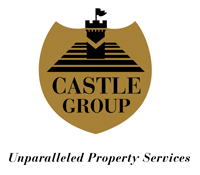 Rely on Your Manager
Rely on Your Manager
By Beth Miller
Congratulations on your new position! Whether elected or appointed, chances are you have been a community volunteer for some time. Like life, being a board member can have its moments. Getting acquainted with your community manager is the first step on the path to success as that person is a key support person for your new role.
Your manager oversees daily operations and vendor activities, provides financial reporting, and documents violations, among many other tasks. Most importantly, though, your manager serves as a buffer between the board and the residents such that your existing relationships within the community remain intact.
Clearly you enjoy helping people if you have accepted a board position, but it is critical to resist the urge to personally assist people with concerns they bring to your attention. A best practice is to establish early on that all requests are to be directed to the manager, who has systems in place for your association’s needs. This helps your manager and your association run in the most efficient and effective manner and frees up your valuable time to focus on short- and long-term planning for your community.
Beth Miller is the Palm Beach Business Development Manager for Castle Group. For more information, call (844) 815-5321, email info@castlegroup.com, or visit www.castlegroup.com.
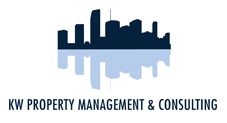 Welcome New Board Members
Welcome New Board Members
By Tim O’Keefe
To begin, I’d like to say, “thank you.” As a new board member, you’re stepping up in a big way for your community. You’ve put yourself in a leadership position responsible for critical decisions that affect your neighbors, your community, and your own family. Though rewarding, it’s not always an easy role. You’ll likely find yourself noticing things that you may have overlooked in the past. Neighbors might approach you at the pool or in the garage to offer up advice or even request special attention.
It’s important to remember that your responsibility must always remain to the community as a whole. Over the years, we’ve found a few qualities the best board members seem to have in common. So, we like sharing them with new leaders stepping up to the plate. I hope you find them helpful.
- Show up on time and attend all board meetings.
- Walk your community regularly and pay attention to what you see.
- Build a relationship with your professionals. Know your attorney, accountant, engineer, property management team, and fellow board members.
- Educate yourself.
- Read and understand your association documents.
- Attend a board member certification class; you must be certified within 90 days of joining the board.
- Review your monthly financial statements. Understand the financial impact of board decisions.
- Invest in your community. Properties deteriorate if not well maintained, which can decrease property values.
Congratulations. You can make a difference and keep your property on a progressive path.
Tim O’Keefe is a Director with KW Property Management & Consulting. For more information, call (786) 910-4226, email tokeefe@kwpmc.com, or visit www.kwpmc.com.
 Welcome to the Board!
Welcome to the Board!
By Kevin M. Carroll, President, CEO
Congratulations on being elected as a member of the board of directors for your community’s association! If you have always had great ideas on how to improve efficiencies, you are now in a position to help implement new improvements and make positive changes to the operation of your association!
Where to Start?
All board members need to comply with their association’s governing documents and state law. An extensive review should be made of any controlling documents which form a contract among the homeowners within the association. Some documents may appear simple but can be confusing. Don’t hesitate to enlist professional assistance from your property manager and/or legal counsel.
Get Certified
Florida statutes 718 and 720 state that within 90 days after being elected or appointed to the board, each newly elected or appointed director shall certify in writing to the secretary of the association that he or she has read the association’s declaration, articles of incorporation, bylaws, and current written policies. In lieu of this written certification, the newly elected or appointed director may submit a certificate of satisfactory completion of the education curriculum administered by a division-approved education provider. I recommend that all new board members take the time to complete this Florida Board Member Certification program as much will be learned!
What Type of Challenges Will You Face?
Areas requiring your immediate attention can come from the adoption and enforcement of rules, decisions relating to maintaining the common areas, managing the budget and assessments, and establishing and maintaining reserves. It is not enough for the board to budget for the existing costs and expenses; it must also assume that some unexpected expenditures will be realized. Each board member has a fiduciary duty to all homeowners. The volunteering of your time for the benefit of your community is commendable!
Kevin M. Carroll is President and CEO of Lang Management. For more information, call (561) 750-8800, email kmc@langmanagement.com, or visit www.langmgmt.com.
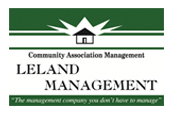 Take a Little Time to Get to Know Your Association
Take a Little Time to Get to Know Your Association
By Martha Ledford, CMCA
Welcome to the board! It is exciting to be a new board member. You are likely ready to dive right in and start serving the community. Before you do, though, take a little time to really get to know your association and see it from a new perspective as a board member. Learn your governing documents inside and out, meet your association manager, and talk to other board members to get an idea of the overall operation and management of your community. Some current policies may not make sense to you, but after some research, you may have a better understanding of why they were implemented. Don’t be afraid to ask questions and take some time to learn your new role! You are bound to bring positive change to your association; just make sure you do your research and solicit input and communication from your fellow residents prior to making any substantial changes.
Martha Ledford is Vice President–Ocala Division for Leland Management. For more information, call (352) 653-2028, email mledford@LelandManagement.com, or visit www.LelandManagement.com.
 Characteristics of an Effective Director
Characteristics of an Effective Director
By Al Lebeau
-
- Keeps the needs and welfare of the association uppermost in mind.
- Is objective and analyzes all the facts—all directors will not agree on a particular issue; however, everyone must keep an open mind.
- Does not become personal—keeps the discussion on the issues and not individuals.
- Does not come on the board with a “secret agenda.”
- Listens carefully to the point of view of others—you can always learn something new.
- Shows respect for others during meetings. Exhibits professional conduct.
- Actively participates in helping to manage the affairs of the association.
- Is willing to invest whatever time is required to get the job done by participating in MAY Management Services Inc.’s certification course for HOA directors.
- Carries out assignments as completely and thoroughly as possible.
- Is willing to research issues before coming to the board of directors meeting; is always well prepared.
- Is thoroughly familiar with appropriate Florida statutes and the association’s legal documents: articles of incorporation, covenants and restrictions, bylaws, and rules and regulations. Chapter 720 for homeowner associations effective July 2013 requires directors within 90 days after election to comply with the following:
- Attend a division-approved course covering F.S. 720, or
- Certify he/she has read the association’s legal documents and will work to uphold and faithfully discharge her fiduciary responsibilities.
- Notices of course completion and certification statements are held by the association’s secretary.
- Board members are suspended until they comply.
- Does not expect to be liked, but strives to be respected.
- Supports the president in conducting the meeting following Robert’s Rules of Order and always speaks to the presiding officer.
- Follows the direction of the board of directors; does not act independently of the board.
Al Lebeau is Client Consultant of May Management Services. For more information, call (904) 461-9708 or visit www.maymgt.com.
 Begin with Board Basics
Begin with Board Basics
By Valerie Hoover, Regional VP
New board members may have a general awareness of the business of the association but often need a practical framework to be effective. Procedures, governing documents, and recent past community business are good places to start. In order to bring the board member up to speed quickly, the following actions are beneficial. First, thoroughly review the association’s recorded governing documents, six months of meeting minutes, and all current policies and procedures. Also, obtain copies of vendor and provider contracts, three months of financial reports, and community
manager’s reports as well as the current adopted budget. Next, gain an understanding of the current collections policies, approach to covenants enforcement, response to complaints, agenda formation, and the bidding process for services and contracts.
Board certification classes are an excellent source of information to help board members understand their obligations. In Florida, there are many opportunities to attend these free classes. Sentry Management sponsors dozens of these sessions throughout the year. If you are interested in attending one of these cla-sses, call your manager or our local office.
Community Associations Institute (CAI) is also a valuable resource for educating new board members. CAI has hundreds of publications available, so board members are able to pick specific topics on which they want a better understanding.
A board member who is prepared with these basics will be a grounded participant who can work effectively to make his or her community better.
Valerie Hoover is Regional Vice President of Sentry Management’s Ft. Myers and Naples offices. For more information, call (239) 277-0112 or visit www.sentrymgt.com.
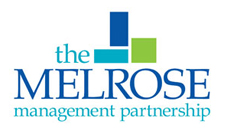 What to Keep in Mind
What to Keep in Mind
By Jack Hanson, President
As a new board member, it is important to keep in mind that associations essentially exist to control property, not people. When board members try to influence behavior, such as deciding when and where children should play or whether a resident has too many parties in his or her home, the result is usually drama that would rival what you see on your favorite soap opera.
I’ve seen a board member make it her personal mission to stop children from playing in the street, going as far as hiring a security guard to camp out and take pictures from the bushes to “catch them in the act.” I’ve seen a man so angry at his neighbor over his perceived bad landscaping that, after trying and failing to get the neighbor fined, he vandalized his own garage door by spray painting the word “rat” in red and framed his neighbor for the act. Remember, your role as a board member is to enforce the rules, not to dictate human behavior. It’s best to let residents solve their personal issues themselves.
Jack Hanson is President of The Melrose Management Partnership. For more information, call (800) 647-0055 or visit www.melrosemanagement.com.
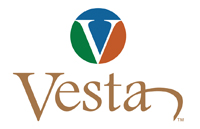 Learn How Your Association Works
Learn How Your Association Works
By Kevin Johnston
Regardless of the size of your association, the best advice Vesta Property Services would offer a new board member remains the same. You must first learn how your association works before you can achieve ultimate success as a board member.
Understanding the fundamentals of your association will better arm you with the knowledge and skills necessary to communicate with neighbors and fellow board members. Read the governing documents, understand the financials, and speak with other board members. Use and learn from all your available resour-ces, so you can then become a knowledgeable and successful board member for your association.
Kevin Johnston is Marketing Manager for Vesta Property Services. For more information, call (877) 988-3782 or visit www.vestapropertyservices.com.
 Know and Understand the Community’s Governing Documents
Know and Understand the Community’s Governing Documents
By Charis Bryan
Congratulations! You were elected to the board of directors! Now what? One of the most important things is making sure that you know and understand the community’s governing documents and rules and regulations. Within 90 days of being elected, you must either read through the documents or take a board certification class.
As a member of the board, you have a responsibility to lead by example. Make sure that you have no violations and that your dues are up to date. Live by the rules of the community. Everyone must be held to the same standards, and there should be no selective enforcement. If you have questions regarding the rules, regulations, or any possible legalities, don’t be afraid to speak with an association attorney.
You will also want to be aware of current vendor contracts. Make sure that you ask for copies of any contracts from existing vendors. It is very important to know what is included in any services contracted within the community.
Now, go forth and help make your community the best it can be!
Charis Bryan is an Administrative Specialist with Vista Community Association Management. For more information, call (866) 682-3443 or visit www.vista-cam.com.

